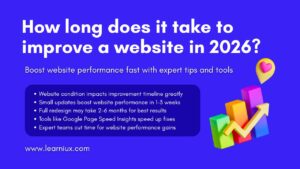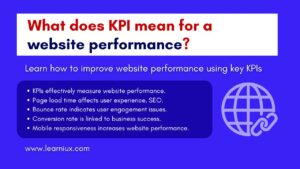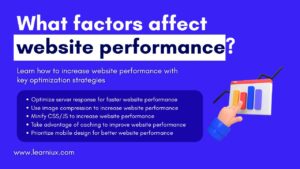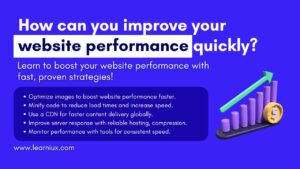Optimizing a website for search engines is an important task for anyone looking to strengthen their online presence. In an era where digital visibility directly impacts business success, tracking SEO performance across multiple search engines like Google, Bing, Yahoo, and others is no longer an option, it’s a necessity. With the right tools, marketers, website owners, and SEO professionals can gain actionable insights into how their sites are performing, identify areas for improvement, and stay ahead of the competition. This article takes a deep dive into the tools available to monitor SEO performance, their features, and how they can help you rank better and drive organic traffic. It focuses on providing practical, up-to-date information to enhance your SEO strategy without relying on outdated methods or limited approaches.
The digital landscape is constantly evolving, with search engines regularly updating their algorithms to prioritize user experience, relevance, and quality content. Tracking SEO performance helps you understand how these changes are affecting your website. This includes monitoring metrics like keyword rankings, organic traffic, backlinks, site speed, and indexing status. Without consistent tracking, you can miss out on serious issues like broken links, poor mobile optimization, or penalties from algorithm updates. More importantly, different search engines have unique ranking factors. For example, Google dominates the market, but Bing and Yahoo still have significant user bases, especially in certain demographics or regions. A tool that tracks performance across multiple platforms ensures that you’re not leaving potential traffic on the table.
The most effective way to monitor SEO performance is to use specialized tools designed to provide comprehensive data. These tools vary in scope, features, and pricing, catering to everyone from small business owners to large enterprises. SEMrush is an excellent option, widely known as an all-in-one SEO platform. It allows users to track keyword rankings across multiple search engines, including Google, Bing, and Yahoo. With SEMrush, you can monitor your site’s position for specific keywords, analyze competitor strategies, and conduct site audits to identify technical SEO issues like broken links or duplicate content. Its dashboard provides a clear overview of organic traffic trends, which helps you understand how your SEO efforts are translating into real-world results. For example, you can see which keywords are driving the most traffic and adjust your content strategy accordingly. SEMrush also offers backlink analysis, which shows you which sites are linking to you and how authoritative they are.
Another powerful tool is Ahrefs, which is particularly powerful in backlink analysis and keyword research. Ahrefs tracks your site’s rankings and provides detailed reports on how your keywords are performing in different regions. Its Content Explorer feature is a game-changer, allowing you to find high-performing content in your niche. By analyzing what works for your competitors, you can create content that your audience will love and rank well for. Ahrefs also offers a site audit tool that checks for SEO issues like slow-loading pages or missing meta tags. For businesses aiming to expand globally, Ahrefs’ ability to track rankings in multiple countries and languages makes it a valuable asset. Its intuitive interface ensures that even those new to SEO can easily navigate its features.
Moz Pro is another excellent option for tracking SEO performance. It offers a suite of tools, including rank tracking, on-page optimization suggestions, and keyword research. Moz Pro’s Rank Tracker monitors your site’s position in search engines, giving you a clear picture of how your SEO efforts are performing. Its Site Crawl feature identifies issues like broken links or invalid redirects, which can hurt your SEO rankings. Moz Pro also offers a Keyword Explorer tool that suggests relevant keywords based on your niche, helping you target terms with high search volume and low competition. For beginners, Moz Pro’s user-friendly interface and educational resources make it a great starting point for learning SEO best practices. Its community-driven approach, including forums and guides, adds value for those looking to expand their SEO knowledge.
For those looking for a more specialized tool, Nightwatch is worth considering. Nightwatch focuses on rank tracking and uses AI to provide accurate insights into your SEO performance. It tracks keyword rankings across multiple search engines and locations, ensuring you have accurate, granular data. For example, you can monitor how your site ranks for specific keywords in different cities or countries, which is ideal for businesses targeting local SEO. Nightwatch’s daily rank tracking feature alerts you to sudden changes in rankings, allowing you to respond quickly to potential issues. Its integration with Google Analytics and Google Search Console extends its capabilities, providing a holistic view of your SEO metrics. Nightwatch is especially popular with agencies and SEO professionals who need detailed, real-time data to manage multiple clients.
Google Search Console is a free tool that is a pillar of SEO performance tracking specifically for Google. Although it focuses primarily on the Google ecosystem, it complements other tools for multi-engine tracking. Google Search Console provides data on impressions, clicks, and click-through rates, which can help you understand how users find your site. It also highlights indexing issues, such as uncrawlable pages and mobile usability issues that can affect your SEO rankings. For example, if your site has a high bounce rate on mobile devices, Google Search Console will flag this, allowing you to optimize for a better user experience. Pairing it with tools like SEMrush or Ahrefs extends its usefulness to other search engines, giving you a more complete picture of your SEO performance.
Another tool worth considering is Serpstat, which offers a budget-friendly option for tracking SEO metrics. Serpstat offers features like keyword tracking, competitor analysis, and site audits, with support for multiple search engines. Its keyword clustering tool groups related keywords, helping you optimize content for broader topics. Serpstat’s backlink analysis feature shows you which sites are linking to your competitors, allowing you to find similar opportunities. For small businesses or startups with limited budgets, Serpstat provides robust SEO insights without the high cost of premium tools like SEMrush or Ahrefs. Its clean interface and straightforward reporting make it accessible to users with varying levels of SEO expertise.
Developed by Neil Patel, Ubersuggest is another cost-effective option for tracking SEO performance. It offers keyword tracking, site audits, and competitor analysis with a focus on simplicity. Ubersuggest pulls data from Google and provides insights into keyword difficulty, search volume, and content ideas. Although its multi-engine tracking capabilities are less robust than SEMrush or Ahrefs, it’s a great option for beginners or small businesses looking to improve their SEO without too much complexity. Ubersuggest’s free tier includes basic features, making it an accessible entry point for those new to SEO.
When choosing an SEO tool, it’s important to consider your specific needs. Budget, ease of use, and the scale of your SEO efforts all play a role. For small businesses or individuals, free tools like Google Search Console or Ubersuggest provide a solid foundation. For advanced users or agencies, premium tools like SEMrush, Ahrefs, or Moz Pro offer deeper insights and multi-engine tracking capabilities. Some tools also integrate with other platforms like Google Analytics or content management systems, which streamlines your workflow. For example, SEMrush integrates with Google Data Studio, which allows you to create custom SEO reports. On the other hand, Ahrefs integrates with tools like Slack for real-time notifications about ranking changes.
To give you a clearer picture, let’s compare the key features of these tools. SEMrush offers keyword tracking, site audits, competitor analysis, and backlink monitoring, with pricing starting at a premium subscription level. Ahrefs excels at backlink analysis, content exploration, and global rank tracking with a subscription-based model. Moz Pro offers rank tracking, on-page optimization, and keyword suggestions, with plans suitable for both beginners and professionals. Nightwatch focuses on AI-driven rank tracking and location-specific data, with flexible pricing for agencies. Google Search Console is free and focuses on Google-specific metrics like impressions and indexing, but it lacks native multi-engine tracking. Serpstat and Ubersuggest offer budget-friendly options with features like keyword clustering and site audits, although their multi-engine support is less comprehensive.
In addition to features, consider the learning curve and support offered by each tool. Moz Pro and Ubersuggest are beginner-friendly with intuitive interfaces and plenty of tutorials. SEMrush and Ahrefs, while powerful, can take more time to master due to their extensive features. Nightwatch strikes a balance, offering advanced capabilities with a relatively straightforward interface. Google Search Console is easy to use but requires familiarity with SEO concepts to effectively interpret its data. Most of these tools offer free trials or limited free versions, so you can test them out before committing.
Another factor to consider is how these tools handle data from multiple search engines. Google dominates the search market, but Bing and Yahoo still account for a significant portion of searches, especially in regions like the United States. Tools like SEMrush, Ahrefs, and Nightwatch allow you to track rankings across these engines, giving you a broader perspective. For example, Bing places more emphasis on exact-match keywords and on-page SEO factors, while Google prioritizes user intent and content quality. Understanding these differences can help you tailor your SEO strategy for each engine. Some tools also support tracking on specific search engines like DuckDuckGo or Baidu, which is useful for targeting specific audiences.
In addition to tracking rankings, these tools help you analyze other SEO factors. For example, backlinks remain an important ranking signal across all search engines. Ahrefs and SEMrush provide detailed backlink reports, which show you the quality and quantity of links pointing to your site. High-quality backlinks from authoritative sites boost your SEO rankings, while low-quality links can hurt them. Similarly, technical SEO issues like site speed, mobile-friendliness, and structured data impact performance. Tools like Moz Pro and SEMrush include site audit features that flag these issues, often with actionable recommendations. For example, if your site has slow-loading pages, SEMrush may suggest compressing images or enabling browser caching.
Keyword research is another essential aspect of SEO tracking. Tools like Ahrefs, Moz Pro, and Serpstat can help you identify high-value keywords with strong search volume and low competition. They also show you how difficult it will be to rank for a particular keyword, which can help you prioritize your efforts. For example, Ahrefs’ Keyword Difficulty Score estimates how difficult it is to rank in the top 10 for a given term. This data-driven approach ensures that you’re targeting keywords that align with your SEO goals. Additionally, tools like SEMrush and Nightwatch provide insight into keyword trends, which can help you stay ahead of seasonal or industry changes.
Competitor analysis is a key benefit of these tools. By tracking your competitors’ SEO performance, you can identify gaps in your strategy. SEMrush and Ahrefs allow you to see which keywords your competitors rank for, what content drives their traffic, and where their backlinks come from. This information can help you improve your own SEO strategy. For example, if a competitor is ranking well for a keyword you’re targeting, you can analyze their content to see what they’re doing differently. Tools like Serpstat also offer competitor tracking, although they’re more focused on keyword clustering and content optimization.
For businesses with a local focus, tools like Nightwatch and Moz Pro offer location-specific tracking. Local SEO is extremely important for businesses like restaurants, retail stores, or service providers that rely on nearby customers. These tools let you monitor rankings for specific cities or regions, which helps your site appear in local search results. For example, Nightwatch can show you how your site ranks for “best coffee shop” in Seattle versus Portland. This granular data helps you optimize for local searches, such as by including location-specific keywords in your content.
While these tools are powerful, they are most effective when used as part of a comprehensive SEO strategy. Tracking performance is just the first step; you need to act on the insights you’re given. For example, if Google Search Console shows mobile usability issues, you may need to adjust your site’s responsive design. If Ahrefs shows a drop in backlinks, you can reach out to authoritative sites for guest posting opportunities. Regularly reviewing your SEO data ensures that you’re proactive rather than reactive. It’s also important to combine data from multiple tools for a complete picture. For example, use Google Search Console for Google-specific metrics and SEMrush for multi-engine tracking and competitor analysis.
To improve your SEO performance, start by setting clear goals. Are you aiming to increase organic traffic, improve keyword rankings, or increase conversions? Your goals will determine which metrics to prioritize and which tools to use. For example, if your focus is on content marketing, Ahrefs’ Content Explorer can help you identify trending topics. If technical SEO is your priority, Moz Pro’s Site Crawl feature will be invaluable. Once you’ve chosen a tool, take advantage of its reporting features to track your progress over time. Most tools allow you to schedule automated reports, saving you time and ensuring you stay informed.
Experimentation is key to finding the right tool for your needs. Many of these platforms offer free trials or limited free versions, so you can test out their features before committing. Start with free tools like Google Search Console to build a foundation, then explore premium options like SEMrush or Ahrefs as your SEO needs grow. By combining the right tools with a strategic approach, you can optimize your site for better performance across multiple search engines, drive more traffic, and achieve your digital marketing goals.
FAQs
Why is it important to track SEO performance across multiple search engines?
Tracking SEO performance across multiple search engines gives you an understanding of how your website ranks on platforms like Google, Bing, and Yahoo. Each search engine has unique algorithms and user bases, which impact your visibility differently. By monitoring performance, you can identify which engines are driving the most traffic to your site. Tools like SEMrush and Ahrefs provide data on keyword rankings and organic traffic to these platforms. This helps you optimize content for different audiences and avoid relying too heavily on a single search engine. For example, Bing has a significant user base in the US, which makes it comparable to tracking with Google. Without multi-engine tracking, you could miss out on opportunities to improve rankings and attract more visitors. Comprehensive SEO monitoring also uncovers technical issues that can hurt performance. Using tools like Google Search Console, among others, ensures a complete view of your site’s health.
Which tools are best for tracking SEO performance across multiple search engines?
Several tools excel at tracking SEO performance across multiple search engines, such as SEMrush, Ahrefs, Moz Pro, and Nightwatch. SEMrush offers keyword tracking, site audits, and competitor analysis for engines like Google and Bing. Ahrefs is known for its backlink analysis and global rank tracking, which supports multiple platforms. Moz Pro offers rank tracking and on-page optimization suggestions, which is ideal for beginners and professionals. Nightwatch uses AI to monitor locations and rankings across search engines, with daily updates. Google Search Console, while Google-centric, complements these tools for broader insights. Serpstat and Ubersuggest are budget-friendly options with keyword tracking and site audit features. Each tool offers unique capabilities, so your choice depends on your budget, scale, and specific SEO needs. Testing the free trials helps determine the best fit for your strategy.
How does SEMrush help monitor SEO performance?
SEMrush is a comprehensive SEO tool that tracks performance across multiple search engines, including Google, Bing, and Yahoo. It monitors keyword rankings, showing how your site performs for specific terms in different regions. The Site Audit feature identifies technical SEO issues, such as broken links or slow-loading pages, that can affect rankings. SEMrush also offers competitor analysis, which reveals which keywords drive traffic to competing sites. Its backlink analysis tool shows the quality and quantity of links pointing to your site, a key ranking factor. Detailed reports on organic traffic help you measure the success of your SEO efforts. For agencies, SEMrush supports managing multiple clients with a customizable dashboard. Integration with tools like Google Analytics increases its functionality. This is ideal for businesses looking for an all-in-one SEO solution.
Can free tools like Google Search Console effectively track SEO performance?
Google Search Console is a powerful free tool for tracking SEO performance, primarily for Google. It provides data on impressions, clicks, and click-through rates, which show how users are finding your site. The tool flags indexing issues, mobile usability issues, and penalties that can hurt SEO rankings. While it doesn’t natively track other search engines like Bing or Yahoo, it complements premium tools for multi-engine analysis. For example, connecting with SEMrush or Ahrefs extends its insights to other platforms. Google Search Console is ideal for beginners or small businesses with limited budgets. Its reports help you optimize content and troubleshoot technical issues to improve SEO. However, for advanced features like competitor analysis or backlink tracking, you’ll need additional tools. It’s a great starting point to build a strong SEO foundation.
How is Ahrefs different from other SEO tracking tools?
Ahrefs stands out for its robust backlink analysis and keyword research capabilities, making it a top choice for SEO professionals. It tracks keyword rankings across multiple search engines, including Google and Bing, with global and regional data. The Content Explorer feature helps you identify high-performing content in your niche, guiding your SEO strategy. Ahrefs’ Site Audit tool flags technical issues like missing meta tags or slow pages that are impacting rankings. Unlike Moz Pro, which focuses on beginner-friendly features, Ahrefs offers deeper insights for advanced users. Its backlink database is one of the largest, providing detailed reports on link quality. Ahrefs also supports competitor analysis, which shows you how your competitors rank and where their traffic comes from. While it’s expensive, its extensive data makes it worth the investment. The interface is intuitive, but it can take time to master its features.
What role does keyword research play in SEO performance tracking?
Keyword research is a cornerstone of SEO performance tracking, as it identifies the terms that drive traffic to your site. Tools like Ahrefs, SEMrush, and Moz Pro suggest keywords with high search volume and low competition, helping you target the right audience. By tracking keyword rankings in search engines, you can see which terms improve or decline over time. This data informs content optimization, ensuring that your site matches user intent. For example, SEMrush’s Keyword Gap tool shows you the terms your competitors rank for, revealing opportunities to target. Keyword trends also highlight seasonal or industry changes, allowing for proactive adjustments. Effective keyword research improves SEO rankings and increases organic traffic. Without it, you run the risk of targeting irrelevant or overly competitive terms. Regular monitoring ensures that your strategy remains relevant and effective.
How can Nightwatch improve my SEO strategy?
Nightwatch is a specialized SEO tool that focuses on rank tracking across multiple search engines and locations. Its AI-powered insights provide accurate, daily updates on keyword rankings, helping you identify changes early. For local SEO, Nightwatch tracks performance in specific cities or regions, ideal for businesses targeting nearby customers. It integrates with Google Analytics and Google Search Console for a holistic view of SEO metrics. The tool alerts you to fluctuations in rankings, so you can quickly fix issues. Nightwatch’s clean interface makes it easy to navigate even for beginners. Its granular data, like location-specific rankings, helps you create content for different audiences. For agencies, it supports efficient tracking of multiple clients. Nightwatch is a great option for those who prioritize accurate, real-time SEO data.
How do I choose the right SEO tool for my needs?
Choosing the right SEO tool depends on your budget, goals, and skill level. Free tools like Google Search Console are ideal for beginners, offering basic Google-specific metrics like impressions and indexing issues. For advanced tracking across multiple search engines, premium tools like SEMrush, Ahrefs, or Moz Pro offer extensive features. Consider the scale of your SEO efforts—small businesses may prefer budget-friendly options like Serpstat or Ubersuggest, while agencies need robust tools like SEMrush. Ease of use is important, with Moz Pro and Ubersuggest being beginner-friendly. Integration with platforms like Google Analytics is a plus for streamlining your workflow. Evaluate multi-engine tracking capabilities if you’re targeting a variety of audiences. Testing free trials can help you evaluate features and usability. Align your selection with specific SEO goals, such as keyword tracking or competitor analysis.
Can SEO tools help with competitor analysis?
Yes, SEO tools like SEMrush, Ahrefs, and Serpstat are great for competitor analysis, which is an important part of tracking performance. They reveal which keywords your competitors rank for, which can help you identify gaps in your strategy. For example, SEMrush’s Keyword Gap tool shows you the terms that drive traffic to your competitor’s sites. Ahrefs’ Content Explorer highlights the top-performing content in your niche, guiding your content creation. Backlink analysis tools show you where competitors get their links, which can give you similar opportunities. This data helps you improve your SEO strategy to outperform your competitors. Moz Pro also offers competitor insights, although its focus is more on on-page optimization. Regular competitor analysis ensures that you stay ahead in search rankings. These tools make it easy to adopt a strategy based on market trends.
How often should I track my SEO performance?
Depending on your goals, tracking SEO performance should be a regular activity, ideally weekly or daily. Tools like Nightwatch provide daily rank updates, which helps you spot sudden changes early. Weekly checks with SEMrush or Ahrefs allow you to monitor trends in organic traffic and backlinks. Regular tracking can help you catch issues like algorithm penalties or broken links early. For local SEO, frequent monitoring is crucial to maintaining rankings in specific regions. Google Search Console can be checked every two weeks for indexing or mobile usability issues. Consistent monitoring helps you measure the impact of SEO changes like new content or backlinks. It also keeps your strategy aligned with search engine updates. Using automated reports from tools like Moz Pro saves you time while keeping you informed.





















































